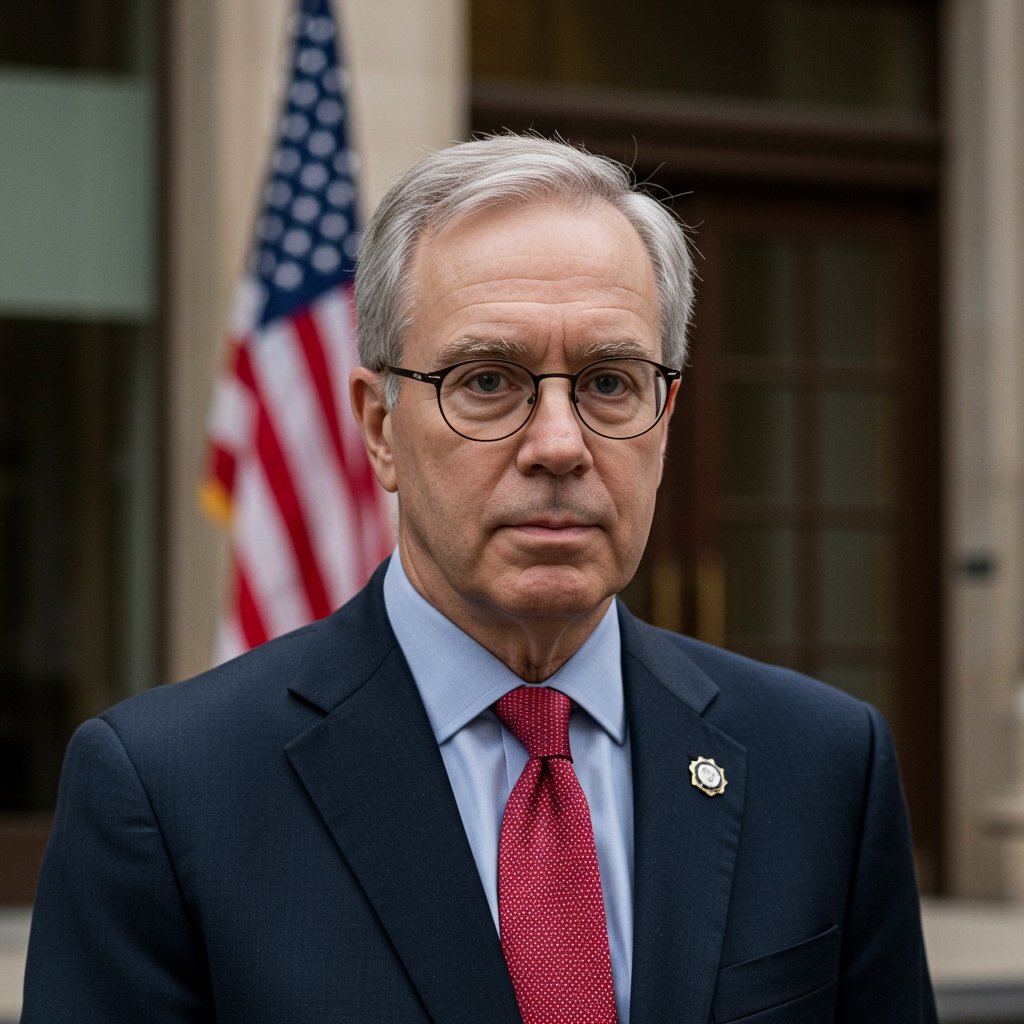US Senate Passes Landmark Federal AI Regulation Bill, Sends to President
Washington D.C. – The United States Senate today, May 9th, 2025, marked a pivotal moment in the nation’s approach to rapidly advancing artificial intelligence technology by passing the Digital Innovation and Security Act (DISA). The comprehensive federal regulatory framework for advanced AI systems cleared the chamber with significant bipartisan support, reflected in the 68-32 vote. Sponsored by Senator Maria Rodriguez (D-CA), the legislation represents the most significant federal effort to date to establish clear guidelines and oversight for AI development and deployment.
The passage of the DISA bill comes amidst escalating concerns regarding the potential societal impacts of increasingly powerful AI technologies. While AI promises transformative benefits across various sectors, experts and policymakers have increasingly voiced alarms about associated risks, including the proliferation of sophisticated misinformation and deepfakes, algorithmic bias perpetuating societal inequalities, security vulnerabilities, and potential economic disruption. The absence of a unified federal approach has led to calls for action from industry leaders, civil liberties advocates, and international partners.
The Digital Innovation and Security Act seeks to strike a balance between fostering innovation and mitigating potential harms. It establishes a new regulatory landscape designed to provide clarity for developers and users while implementing safeguards to protect the public. The bipartisan nature of the bill, shepherded through complex negotiations by Senator Rodriguez and her colleagues from both sides of the aisle, underscores a shared recognition of the urgency and importance of addressing AI governance at the federal level.
Key Provisions of the Digital Innovation and Security Act
The DISA bill introduces several critical measures aimed at ensuring the responsible development and deployment of advanced artificial intelligence systems. These provisions target key areas identified as high-risk by policymakers and AI experts.
One of the central tenets of the legislation is the mandate for pre-deployment safety testing for high-impact AI models. This requirement compels developers of AI systems deemed to have significant potential influence or risk – such as those used in critical infrastructure, healthcare diagnostics, financial lending, employment decisions, or law enforcement – to conduct rigorous safety evaluations before releasing these models to the public. The goal is to identify and mitigate potential flaws, biases, and unintended consequences in a controlled environment, thereby reducing the likelihood of harm occurring once the systems are widely deployed. The specifics of what constitutes ‘high-impact’ and the standards for ‘safety testing’ are expected to be detailed in subsequent regulations developed by the implementing body, allowing for flexibility as technology evolves.
Another crucial provision addresses the growing challenge of AI-generated content. The bill requires clear labeling for AI-generated content across platforms. This mandate aims to enhance transparency and combat the spread of deceptive synthetic media, including deepfakes, AI-generated text, audio, and images. The requirement stipulates that content created or significantly altered by artificial intelligence must be clearly and conspicuously labeled as such, allowing consumers to distinguish between human-created and machine-generated material. This measure is particularly aimed at curbing misinformation campaigns and preserving trust in digital information. Implementing and enforcing this provision across diverse online platforms and content types is anticipated to involve technical challenges, which the bill entrusts to the new regulatory body to address.
Establishing the Federal AI Safety Committee
To oversee the implementation and enforcement of the DISA’s provisions, the bill creates a new dedicated entity: the Federal AI Safety Committee. This committee is envisioned as the primary federal authority responsible for AI regulation. Its mandate includes enforcing the mandatory safety testing requirements, developing and updating labeling standards, monitoring the rapid pace of technological advancements in AI, and conducting research into emerging AI risks and safety measures. The committee is expected to be composed of experts from various fields, including AI research, cybersecurity, ethics, economics, and law, reflecting the multidisciplinary nature of AI governance. By establishing a specialized body, the legislation aims to ensure that regulatory efforts are informed by deep technical understanding and can adapt effectively to the dynamic AI landscape. The committee will also likely play a role in coordinating with international partners on global AI safety standards.
Legislative Journey and Path Forward
The passage of the Digital Innovation and Security Act in the Senate was the culmination of extensive debate, negotiation, and collaboration. The 68-32 vote demonstrates significant, though not unanimous, support within the chamber, drawing votes from members of both major parties who recognized the need for proactive AI governance. Senator Maria Rodriguez (D-CA), the lead sponsor, was instrumental in bridging partisan divides and building consensus around the bill’s key components. While the vote count indicates broad agreement on the necessity of federal action, the 32 dissenting votes likely represent concerns related to potential regulatory burdens on innovation, the scope of federal authority, or the specific mechanisms proposed within the bill. These debates highlighted the inherent complexities in regulating a nascent and rapidly evolving technology.
Following its successful passage in the Senate today, May 9th, 2025, the Digital Innovation and Security Act (DISA) now heads to the President’s desk for signature. Given the bipartisan nature of the bill and the administration’s previously stated interest in AI safety and responsible innovation, the bill is widely expected to be signed into law. Upon enactment, the focus will shift to the practical implementation of the legislation, primarily through the work of the newly established Federal AI Safety Committee. This body will face the crucial task of translating the bill’s broad mandates into specific, actionable regulations and guidelines that effectively address risks like misinformation and bias while simultaneously fostering responsible development and ensuring the United States remains a leader in AI innovation.
The passage of the DISA is a landmark event, positioning the U.S. government to take a more active role in shaping the future of artificial intelligence. It signals a clear intent to manage the profound changes AI is bringing to society, aiming to harness its benefits while safeguarding against its potential pitfalls.






